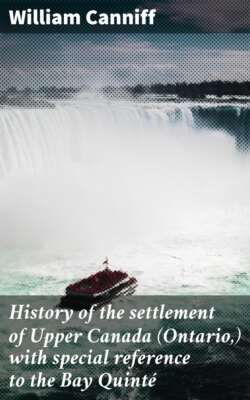Читать книгу History of the settlement of Upper Canada (Ontario,) with special reference to the Bay Quinté - William Canniff - Страница 22
На сайте Литреса книга снята с продажи.
SOUTH CAROLINA.
ОглавлениеSouth Carolina was first settled in 1670.
“The great body of the people were emigrants from Switzerland, Germany, France, Great Britain, and the northern colonies of America, and their descendants, and were opposed to a separation from the mother country;” yet South Carolina furnished troops for the rebellion, in 1776, to the number of 2,069. Subsequently she gave 4,348; although her quota, as fixed by Congress, was 16,932.
In this colony were many who could not see the justice of a rebellion. Yankee descendants may say they “bowed their necks to the yoke of colonial vassalage,” but it was a wise spirit of conservatism which is expressed in the desire to “look before you leap.” “Persons who had refused to enlist under the whig banner, flocked to the royal standard by hundreds.” “Sir Henry Clinton informed the British Government that the whole State had submitted to the royal arms.” This general attachment to the British crown made the rebels vindictive and bloodthirsty, and they sought to drive away the loyal and peaceable by a vengeful shedding of blood. Consequently, the tories retaliated, and Chief Justice Marshall said, “the whigs seem determined to extirpate the tories, and the tories the whigs; some thousands have fallen in this way in this quarter.” “Being almost equally divided, reciprocal injuries had gradually sharpened their resentment against each other, and had armed neighbour against neighbour, until it became a war of extermination.” Now, it is submitted that rebellion can hardly be justified when the people are so equally divided. Sabine remarks that “after the fall of Charleston, and until the peace, the tories were in the ascendant.”
